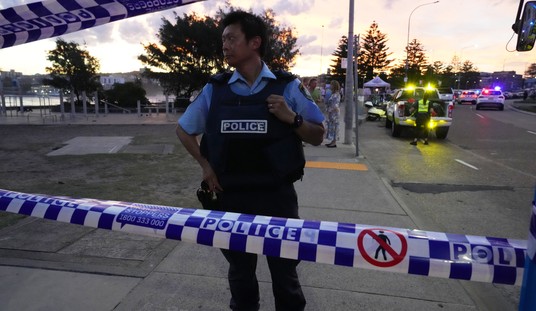WASHINGTON – Terrorism experts warned Congress last week that Islamist terrorist groups are expanding in complex networks across the Middle East, highlighting the evolving nature of the threat these organizations pose to the region.
Seth Jones, a national security analyst with the RAND Corporation, told the House Armed Services Committee that there has been an increase in the number of Salafi jihadist groups, particularly in North Africa and the Levant. Al-Qaeda is the largest one, and all emphasize the importance of returning to a pure Islam and believe that violent jihad is a religious duty.
He said that while about a half-dozen terrorist groups have sworn allegiance to al Qaeda’s core, led by Ayman al-Zawahiri, there now exists various Salafi jihadist groups that have not formally pledged allegiance to the militant group, and yet they share a common goal of establishing an extreme Islamic emirate.
“They are committed to establishing an Islamic emirate, and several of them have plotted attacks against the U.S., against U.S. embassies, against U.S. diplomats, against U.S. targets overseas,” Jones said.
Among these groups are also al-Qaeda-inspired individuals and networks, including the Boston Marathon bombers, who had no direct ties to the terrorist organization but listened to al-Qaeda’s propaganda and used it to plan attacks.
“I think there’s been a tendency among some journalists and pundits to lump all Sunni Islamic groups under the title al-Qaeda, which I think has clouded a proper assessment of the movement,” Jones said.
Director of National Intelligence James Clapper told a Senate hearing recently there are at least five al-Qaeda franchises in 12 countries that “this movement has morphed into.”
According to data compiled by the National Consortium for the Study of Terrorism and Responses to Terrorism, more then 6,800 terrorist attacks killed more than 11,000 people in 2012, making it the most active year of terrorism on record.
Bill Braniff, a terrorism analyst at the University of Maryland, said the six most lethal groups in 2012 – the Taliban, Boko Haram, al-Qaeda in Iraq, Tehrik-e Taliban Pakistan, al-Qaeda in the Arabian Peninsula, and al-Shabaab – were responsible for approximately 5,000 deaths.
He noted that these groups are generally considered affiliates of al-Qaeda, and yet al-Qaeda itself has not been directly responsible for an attack since 2012.
Braniff said that a dozen of the 20 most lethal terrorist organizations and half of the 20 most active organizations had connections to al-Qaeda in 2012, suggesting that al-Qaeda remains a “central hub in a network of highly lethal and active terrorist groups.”
“What should we take from these seemingly contradictory developments?” he said. “Did al-Qaeda succeed by inspiring widespread jihadism, or has it lost to a variety of more parochial, albeit popular, actors?”
Braniff warned that it would be wrong to conclude that because al-Qaeda itself is not carrying out violent attacks that the group’s strategy has become ineffective.
“This has been the most active two years in the history of modern terrorism and al-Qaeda remains at the historical, organizational and ideological center of the most lethal terrorist threats of our time,” Braniff said.
Several Republicans have accused the Obama administration of downplaying the threat from al-Qaeda, its affiliates and the groups that it has inspired.
Rep. Buck McKeon (R-Calif.) said that while President Obama has declared that al-Qaeda was on a path of defeat, the organization currently controls over 400 miles of territory in the Middle East – the most in its history.
“While the president seeks an end to war on terrorism and is not providing the leadership necessary for our efforts in Afghanistan, al-Qaeda seeks a continued war against the United States and the west. This is the reality and this is what our policy and strategy must address,” McKeon said.
One of these Salafi jihadist groups, the Islamic State of Iraq and the Levant (ISIL), recently seized control of parts of the cities of Fallujah and Ramadi located in Iraq’s Anbar province – the site of a long and bloody battle for U.S. forces during the Iraq war.
Sectarian tensions in the Anbar province recently escalated into several violent revolts against the government. The ISIL has tried to capitalize on the simmering resentment among Sunnis in the north and west, who feel that Iraqi Prime Minister Nouri Al-Maliki’s Shiite-led government treats them like second-class citizens.
ISIL, which started as an affiliate of al Qaeda in Iraq, undertook a surprise attack on Jan. 1, capturing large parts of these cities.
“If we don’t want to see Iraq with large swaths of territory under militant control, and we shouldn’t, we must be willing to lend an appropriate hand,” House Foreign Affairs Committee Chairman Ed Royce (R-Calif.) said at a hearing Wednesday.
Brett McGurk, deputy assistant secretary of State for Iraq and Iran, told the committee ISIL is striking in Iraq in three ways: attacking Shiite civilian areas as an attempt to rekindle a civil war, attacking Sunni areas to eliminate rivals and govern territory, and attacking Kurds in northern Iraq to incite ethnic tension and unrest.
McGurk, who recently met with Iraqi leaders in Baghdad, cautioned that Iraqi forces were facing well-equipped fighters from ISIL.
“ISIL is an army,” McGurk said. “They have heavy weapons, they have 50 caliber sniper rifles, they are very well trained and very well fortified so we have to have the Sunnis, local tribal people, out in front. But they will require security support.”
McGurk said the U.S. was urging Prime Minister Al-Maliki to work together with Anbar tribes that also want to see the ISIL out of their territory.
The city of Ramadi has been secured by Iraqi troops, but fighting continues on the outskirts. He said the plan is to have the Iraqi army cordon off Fallujah, and tribal fighters will take the lead on securing the city one neighborhood at a time.
Al-Qaeda claimed it cut ties with ISIL because of the group’s brutal tactics within the territory it controls in Syria.
Despite the alleged split, ISIL will likely remain “a very serious threat” with the ability to “self-sustain” through its control of oil facilities and through its extortion rings in Syria, McGurk said.









Join the conversation as a VIP Member